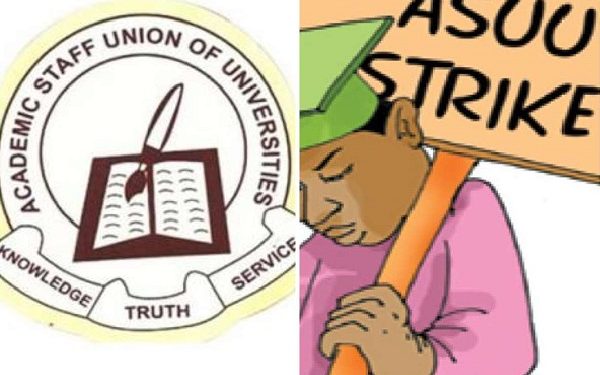By Sanusi Adamu
Barely hours after the Federal Government renewed its commitment to resolving all pending issues with the Academic Staff Union of Universities (ASUU) through dialogue, the union stunned FG officials by declaring a nationwide strike, a move that government insiders now describe as a calculated act of sabotage.
According to reliable sources, following a crucial meeting held on Friday, the Minister of Education, Dr Tunji Alausa, and the FG negotiating team had noted ASUU’s concerns about welfare, conditions of service and other depends, and immediately relayed them to the Villa from where positive indications were already secured.
However, credible sources hinted that events that followed revealed a deliberate breakdown of communication, not from government, but from ASUU’s end.
After the Friday session, Senator Lekan Tejuoso, the Deputy Chairman of the FG Negotiating Team representing the expanded negotiating panel, began reaching out to the ASUU leadership to arrange an urgent physical meeting aimed at preventing the strike.
Senator Lekan Tejuoso, a former lawmaker and university pro-chancellor, is standing in for Dr Yayale Ahmed (who wasn’t in town this weekend) the leader of the 53-member re-negotiation committee set up to review the 2009 FG–ASUU agreement.
Government officials say the panel had prepared updated proposals to address the lecturers’ key demands, including salary adjustments, funding of universities, and pending allowances. This has been presented to ASUU and the FG team was awaiting the official response of the university teachers.
But ASUU allegedly declined the government’s request for a physical, face-to-face dialogue, saying their negotiating team members had left town.
In fact, Senator Tejuoso personally called ASUU President, Prof. Chris Pinuwa, proposing a Sunday meeting as a compromise.
However, multiple calls said to have been placed to Prof. Chris Piwuna from Friday night through Saturday, were not answered, until after ASUU publicly declared the strike is coming to effect.
According to a senior official familiar with the exchange, “The government had shown good faith. The President gave the go-ahead, the minister acted swiftly, and the negotiating panel was on standby. But ASUU simply shut the door on dialogue.”
Government sources insist that the strike was pre-planned, not a reaction to any stalemate, accusing ASUU of bad faith and deliberate sabotage.
“They refused a physical meeting, ignored the mediator’s calls, and went ahead to announce a strike while negotiation lines were still open,” one top official said.
This move, according to the Federal Ministry of Education, undermines the goodwill shown by President Tinubu, who only days earlier had approved the reconstitution of the expanded negotiating panel to fast-track solutions to long-standing university staff issues.
Observers say ASUU’s action effectively cut off dialogue just when the government was ready to deliver concrete commitments.
The sudden strike has thrown thousands of university students into confusion once again, reviving memories of previous academic shutdowns that crippled the sector for months.
Critics argue that ASUU’s refusal to engage, despite fresh assurances from the government, reveals a pattern of confrontation rather than collaboration, one that continually hurts students, parents, and Nigeria’s already strained educational system.
The government maintains that the door to dialogue remains open, but the latest turn of events has raised serious questions about ASUU’s sincerity.
While the Federal Government says it has done everything possible to prevent another disruption, it now appears that the union’s leadership had other plans, plans that prioritised protest over progress.
*Adamu is an academic and lives in Kano*









